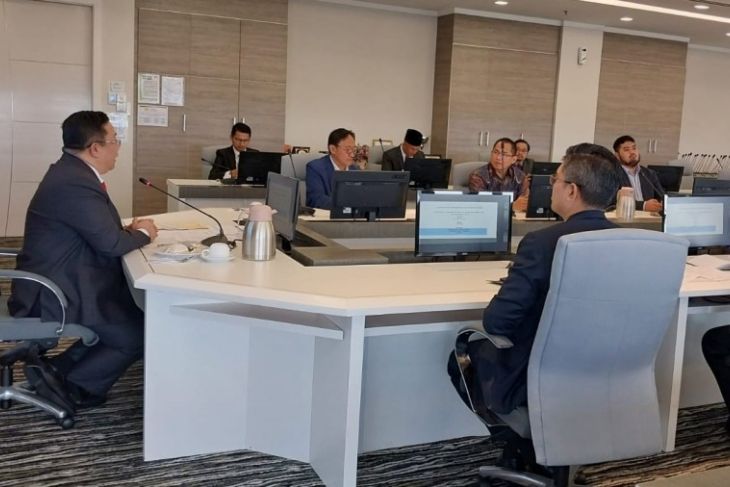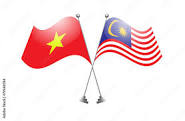By Tho Xin Yi – The Star
 As the guest country of honour at the largest global investment and promotion fair, Malaysia aims to narrow the trade imbalance with China.
As the guest country of honour at the largest global investment and promotion fair, Malaysia aims to narrow the trade imbalance with China.
XIAMEN, a coastal city in the southeastern province of Fujian in China, has deep ties with Malaysia.
In 1993, it established a sister city pact with George Town, Penang.
It is also home to Xiamen University, which was founded by the late Malaysian philanthropist Tan Kah Kee in 1921. The university’s Malaysian campus – the first overseas campus for Chinese universities to be set up out of China – will receive its first batch of students in Salak Tinggi as early as September next year.
Xiamen is also Malaysia’s seventh largest trading partner among the Chinese cities last year. Two-way trade experienced a 4.5% growth to reach US$1.59bil (RM5bil) in the first half of 2014.
As Malaysia and China celebrate 40 years of diplomatic ties this year, Malaysia has been chosen as the guest country of honour of the 18th China International Fair for Investment and Trade (Cifit) held this week in Xiamen.
Occupying the 47 booths in the Malaysian pavilion were property developers, food and beverage manufacturers, education institutions and others.
The Prime Minister’s special envoy to China, Tan Sri Ong Ka Ting, led the delegation, which comprised representatives from the International Trade and Industry Ministry, Malaysia External Trade Development Corporation (Matrade), Malaysian Investment Development Authority (Mida), Associated Chinese Chambers of Commerce and Industry of Malaysia (ACCCIM) and Malaysia-China Chamber of Commerce (MCCC). Their mission is to attract Chinese investors to Malaysia, narrow the trade imbalance between Malaysia and China, and realise the goal of US$160bil (RM512bil) of bilateral trade between the two countries by 2017.
Ong noted that Cifit is an excellent platform to reinforce friendship and cooperation.
“China is Malaysia’s number one trading partner while Malaysia remains China’s largest trading partner in Asean for the past six years,” he said.
“Last year, Prime Minister Datuk Seri Najib Tun Razak and Chinese President Xi Jinping have agreed to upgrade ties to a comprehensive strategic partnership. This reflects the importance of bilateral cooperation in all sectors.”
MCCC was confident of wooing RM5bil of potential investment from China to Malaysia from the fair.
Its vice-president Datuk Joseph Lim said Chinese investors are keen to venture into Malaysia, as proven by the RM1.668bil worth of deals inked in a ceremony during Cifit, which is touted as the largest global investment and promotion fair.
“Memoranda of understanding were exchanged between eight Malaysian companies and their Chinese counterparts.
“They are in the fields of logistics, construction, green energy and education, among others,” he said.
ACCCIM said it is eager to play an effective role to enhance the two-way trade cooperation.
Its president Datuk Lim Kok Cheong said ACCCIM has set up a Malaysia-China Economic, Trade and Investment Promotion Committee to work closely with the Government to expand business and investment cooperation between both countries through creating more platforms for business interaction and networking.
The 21st century Maritime Silk Road, a concept put forth by Xi during his visit to Indonesia last year to revive the ancient trade route, was given a lot of emphasis during Cifit.
Ong encouraged Malaysian businesses to be part of the construction of the new maritime trade route.
He also proposed adopting e-commerce solutions to speed up Customs clearance for efficient logistics and lower costs.
East Coast Economic Region Development Council (ECERDC) chief executive officer Datuk Jebasingam Issace John said the Malaysia-China Kuantan Industrial Park (MCKIP), the sister park of the China-Malaysia Qinzhou Industrial Park in Nanning, Guangxi province, is situated at a strategic location on the maritime route between Malaysia and China.
“The Kuantan port, which is currently being developed into a deep water port, is 1,104 nautical miles from the Qinzhou port.
“It only takes three to four days of shipping time between these ports.
“The Chinese investors are keen to manufacture halal products in Malaysia because our internationally recognised halal certification system provides them with convenience to export their products to other countries,” Jebasingam said.
Meanwhile, the Malaysian delegation also had a courtesy meeting with government officials from Xinjiang Uighur Autonomous Region, which was the guest province of honour of the 18th Cifit.
Ong said its governor Nur Bekri appreciated the Malaysian Government’s stand in fighting religious extremism as Beijing stressed its determination to weed out extremism.
“Besides proposing direct flights between Malaysia and the Xinjiang capital of Urumqi, Bekri also expressed an interest in the halal products industry in Malaysia.
“This is in line with Prime Minister Datuk Seri Najib Tun Razak’s call to tap into the Muslim market in China during his official visit to Xian in Shaanxi province earlier in May.
“It’s time for us to expand our focus from the eastern coastal area of China to the northwestern side of China,” Ong said.



